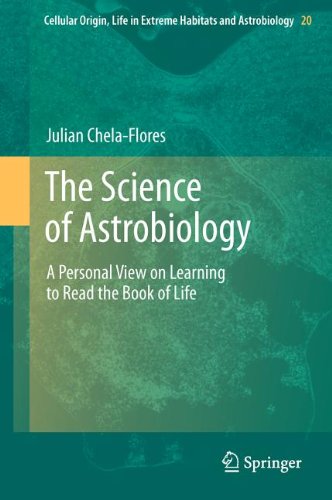

Most ebook files are in PDF format, so you can easily read them using various software such as Foxit Reader or directly on the Google Chrome browser.
Some ebook files are released by publishers in other formats such as .awz, .mobi, .epub, .fb2, etc. You may need to install specific software to read these formats on mobile/PC, such as Calibre.
Please read the tutorial at this link: https://ebookbell.com/faq
We offer FREE conversion to the popular formats you request; however, this may take some time. Therefore, right after payment, please email us, and we will try to provide the service as quickly as possible.
For some exceptional file formats or broken links (if any), please refrain from opening any disputes. Instead, email us first, and we will try to assist within a maximum of 6 hours.
EbookBell Team

4.3
88 reviewsSince the publication of The New Science of Astrobiologyin the year 2001—the first edition of the present book—two significant events have taken place raising the subject from the beginning of the century to its present maturity. Firstly, in 2001 the Galileo Mission still had two years to complete its task, which turned out to be an outstanding survey of the Jovian system, especially of its intriguing satellite Europa. Secondly, the Cassini Huygens Mission was on its way to Saturn. Its present success has surpassed all the expectations of ESA and NASA. Cassini had been launched four years earlier and Huygens was to land on Titan three years after the publication of the first edition. Besides, astrobiologists had no idea that another satellite of Saturn, Enceladus, was going to force a tantalizing lure on the scientific community with its startling jets of water exuding an air of mystery, hinting at a submerged inhabitable ocean of salty water. Before the date of publication of The New Science of Astrobiologytherewas not an awareness of the Earth-like features of Titan. Besides, we still had to learn that Titan was the fifth body of the Solar System that possibly contained a water ocean, thus joining our planet and the three Galilean satellites other than Io.
As a multidisciplinary subject, astrobiology sometimes regretfully neglects to some extent the life sciences. There are many other aspects of our culture to keep in mind: chemical evolution, the earth sciences, the physical sciences, cutting-edge technology and the humanities that lie at its frontiers. The emphasis on our previous book made a modest attempt to set the scientific subject squarely amongst other sectors of culture. These boundaries are philosophy and theology, branches of the humanities asking similar questions to the basic issues that are astrobiology's main domain (the origin, evolution, distribution and destiny of life in the universe). The present volume brings these issues up to date.